PROTECT YOUR DNA WITH QUANTUM TECHNOLOGY
Orgo-Life the new way to the future Advertising by AdpathwayYou know you are winning when powerful people become hypocrites to claim they agree with you. That’s how free speech advocates should view Princeton President Christopher Eisgruber’s Terms of Respect: How Colleges Get Free Speech Right. Eisgruber, a gifted attorney, leads elite opposition to higher education reform. He personifies the establishment, as one might say back in the day--The Man. Eisgruber’s book displays the mindset of leaders who realize they can no longer use raw power to enforce compliance and must instead negotiate with the normies. As Ronald Reagan said of an empire bigger and meaner than Princeton, we free speech activists should trust but verify.
As one might expect, Terms of Respect offers a lawyer’s brief against reform, avoiding inconvenient facts and responding to criticisms with distractions. Yet it also makes important points. Eisgruber argues that universities need norms of civility to function; those norms sometimes limit speech. (On this, the Trump administration agrees.) When norms fail, policies make poor substitutes.
This makes the job of an elite college president challenging, as different constituencies, all well organized and many with deep pockets, insist that their sensitivities trump others. For every group of Middle East Studies majors celebrating Hamas’s mass murder of Jews, there are organized alumni who want those students punished or at least want to interrogate how well universities teach the complexities of conflicts in the Levant. On the latter, Eisgruber admits that some academic disciplines have “deep and pervasive problems caused by academic favoritism for left-wing viewpoints.” He never mentions that university presidents had years to address those problems.
Eisgruber rightly points out that some controversial speakers add value to academia---others, not so much. Charles Murray and Milo Yiannopoulos each faced leftist rioters when appearing on campuses, but while Murray is an intellectual, Yiannopoulos is a clown. Everyday life on campus is more placid, but Eisgruber avoids addressing why---few want to risk inviting conservative speakers.
Eisgruber says campuses should signal their open-mindedness by hosting a few open conservatives, like Princeton Professors Robby George and Keith Whittington. To his credit, Eisgruber had freshmen read Whittington’s excellent book, Speak Freely: Why Universities Must Defend Free Speech. (Whittington has since left Princeton for Yale.)
Yet for all these strengths, the attorney avoids facts that harm his case. Universities are places where people are supposed to discuss ideas, and the Princeton president claims they censor less than American society. Data say otherwise. Eisgruber correctly notes survey research by political scientists James Gibson and Joseph Sutherland showing 46% of Americans report self-censoring---over thrice the levels of the McCarthy era. Yet elsewhere in the book he dismisses similar surveys by similarly credentialed social scientists at the Foundation for Individual Rights and Expression (FIRE) finding that 80% of college students report self-censoring.
FIRE’s most recent survey finds that 64% of Princeton undergraduates feel uncomfortable disagreeing with a professor about a controversial political topic. Just 42% of Princeton undergraduates see it as very or extremely clear that “college administration protects free speech on campus.” (The national average is even worse at 36%).
Why do many fear speaking freely even on Princeton’s clubby campus? There are reasons Eisgruber ignores. While “inclusivity” and “diversity” appear often in Terms of Respect, “knowledge” and “truth” never make the index. Fundamentally, Eisgruber focuses on how diverse undergraduates might become alumni who support their alma mater, not how they might learn by debating ideas. Free speech is thus a political problem administrators must manage, not a process central to what universities do. In a chapter on “Strengthening Campus Discourse,” the Princeton president calls debate divisive; he instead wants disagreements to be brokered by the professionals he employs.
Hence a related reason, bureaucracy. University leaders rule large empires they can weaponize to deter dissent. Those include DEI bureaucracies, which Eisgruber defends. Like many campuses, Princeton has an anonymous bias reporting system, like East Germany back in the day. Such weapons need not be used often to make dissenters afraid.
When Classics Professor Joshua Katz criticized DEI initiatives, Princeton reopened an investigation into a 15-year-old indiscretion for which Katz had already been punished. Supposedly, new evidence came to light, though the peculiar timing and nontransparency of the investigation undermines that case. Eisgruber expresses sadness at Katz’s firing. Given Princeton’s freshmen orientation materials portraying Katz as racist, this seems disingenuous.
None of which is to say we free speech activists should not work with Eisgruber to advance our cause. No movement succeeds by working only with politicians whose motives are pure. When your opponents claim to share your goals, it means they are ready to negotiate. As President Obama scolded leftist activists, when “people who are in a position to start bringing about change are ready to sit down with you, then you can't just keep on yelling at them.”
So don’t yell at President Eisgruber. Instead, make concrete demands. The Man seems ready to deal.
Robert Maranto is the 21st Century Chair in Leadership at the Department of Education Reform at the University of Arkansas, and lead editor of The Free Inquiry Papers. These views are his alone.


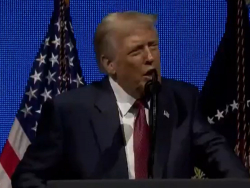

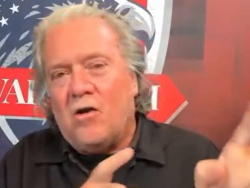


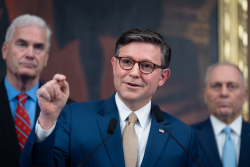
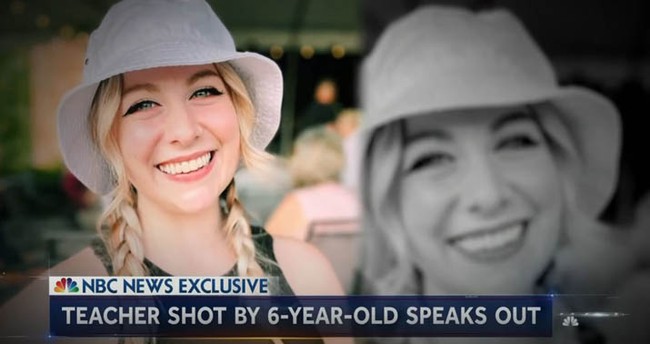
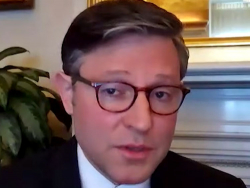










.jpg)






 English (US) ·
English (US) ·  French (CA) ·
French (CA) ·